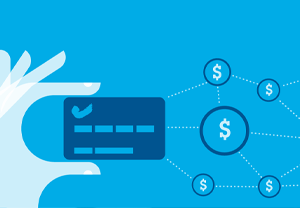According to the Federal Trade Commission (FTC), Americans lost over $8.8 billion to fraud in 2022. How? Read three real life stories in this installment of the Rascal Report to see how some common scams work. The scams and amounts lost are real, but the names used are not.
 Helpful Imposter
Helpful Imposter
Barry received a call from the fraud department, inquiring about two pending debit card transactions on his account that had been flagged as fraudulent: $400 at Best Buy and $1,000 at Apple. Barry confirmed that these transactions were fraudulent. The caller on the phone then asked Barry for his card number so she could begin the dispute process, which he supplied her. Barry then provided his digital banking username and password to the caller. The problem: the caller didn’t work for Barry’s credit union. She was a fraudster. Minutes later Barry’s debit card was added to Zelle® and payments were being attempted to individuals he did not know. External accounts that did not belong to him were also added to his digital banking profile in an attempt to set up transfers.
Takeaway: CFCU will never call you and ask you for your card number, card PIN, digital banking username or password, or one-time verification code. If you get a call from us that you don’t expect, hang up and call us directly at 800.522.3535.
 Overseas Operator
Overseas Operator
Virginia was in love with her longtime boyfriend, Paul, who helped her through a lonely and difficult time in her life. Even though they had never met in person, he provided her with a sense of purpose and happiness. Paul was working overseas, trying to save money so he could move to the US to be with Virginia.
Due to some tax laws where he was located, Paul couldn’t deposit his payroll checks, so he asked Virginia for help. Virginia was more than willing to give him access to her digital banking profile. Virginia began receiving deposits to her account. Paul instructed her to send the funds to some of his family members via Zelle. Virginia did what Paul asked her to. Everything seemed fine to Virginia until the deposits started to return as fraudulent, leaving Virginia’s account overdrawn over $10,000. Virginia didn’t know that Paul was a scammer and used her as a money mule to move fraudulent funds through the financial system. Virginia was the victim of a romance scam.
Takeaway: Never provide your digital banking login credentials to anyone, and never let others move money through your account(s) – they may be using you as a money mule.
 Phony Farmer
Phony Farmer
Gail, a longtime CFCU member, requested to wire $57,000 to purchase a tractor. The request was initially processed, but upon further review later that day, it was discovered that the recipient business was newly established and not involved in the sale of farm equipment. During a thorough conversation with Gail, it was revealed that the wire request had actually originated from her fiancé, Mike, whom she had never met in person and who was currently overseas. Fortunately, Gail’s credit union managed to recall the wire in time to recover a portion of the funds she had sent. Sadly, Gail had been sending Mike money for months, losing over $115,000. She had no idea she was the victim of a romance scam.
Takeaway: True love doesn’t involve demanding money before even meeting in person. Exercise caution when people request funds through untraceable and irretrievable digital payment services such as Venmo, Zelle, wire transfers, gift cards, and cryptocurrency.
Con-Million the Chameleon Says: Fraudsters are clever and can operate in different ways. Some scams rely on creating a false sense of urgency by sending fake alerts and order notifications, or by impersonating government agencies to trick victims into providing their personal information. Other scams involve slowly gaining the victim’s trust through companionship or “investment opportunities” before asking for money or access to their accounts.



